-
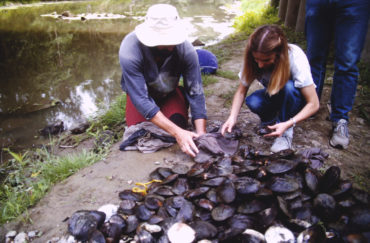
I Speak for the Fish: Mussel memory, the race to save an endangered species
-For eight hours each day, Kathy Johnson knelt in waist-deep water sorting a steady flow of material moving along a two-foot-wide conveyor belt. She was looking for treasure but not of the golden variety – her team was after an endangered freshwater mussel.
03 -
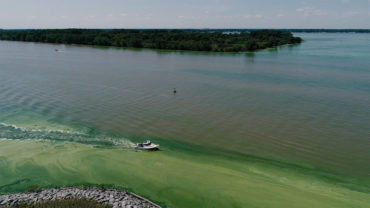 AgricultureAlgae BloomsBeaches, Boating, Paddle Sports and SailingFeature HomepageJames ProffittLake ErieLatest NewsNewsOhioRecreational Hunting and FishingResearch, Data and TechnologyScience, Technology, ResearchTourismWater Quality and Restoration Efforts
AgricultureAlgae BloomsBeaches, Boating, Paddle Sports and SailingFeature HomepageJames ProffittLake ErieLatest NewsNewsOhioRecreational Hunting and FishingResearch, Data and TechnologyScience, Technology, ResearchTourismWater Quality and Restoration EffortsGood News for Lake Erie: 2021 algal bloom severity forecast is a low 3
-But researchers caution that this year’s low rains are to thank for that.
-
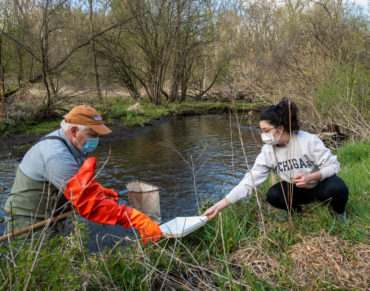 Beaches, Boating, Paddle Sports and SailingDetroitFeature DetroitFeature HomepageFish, Birds and AnimalsForests and PlantsGroundwater ContaminationLatest NewsMichiganNewsOntarioResearch, Data and TechnologyScience, Technology, ResearchWater Quality and Restoration Efforts
Beaches, Boating, Paddle Sports and SailingDetroitFeature DetroitFeature HomepageFish, Birds and AnimalsForests and PlantsGroundwater ContaminationLatest NewsMichiganNewsOntarioResearch, Data and TechnologyScience, Technology, ResearchWater Quality and Restoration EffortsPublic Resource: Around the Great Lakes, everyday people help make science possible
-Across the Great Lakes region, citizen – or community – scientists of all ages are collaborating with researchers and influencing policy, one project at a time.
-
 Climate ChangeCollaborationLake ErieLake HuronLake MichiganLake OntarioLake SuperiorLatest NewsMichiganResearch, Data and TechnologyScience, Technology, Research
Climate ChangeCollaborationLake ErieLake HuronLake MichiganLake OntarioLake SuperiorLatest NewsMichiganResearch, Data and TechnologyScience, Technology, ResearchResearchers seek volunteers to document coastal erosion in Michigan
-The research team is developing a first-of-its kind citizen science program to equip and train volunteers to pilot drones and use other geospatial technologies to better monitor and understand coastal change and vulnerabilities.
-
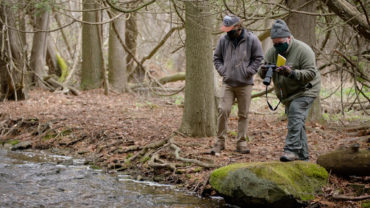 Drinking WaterFeature HomepageFish, Birds and AnimalsForests and PlantsIllinoisIndianaInvasive SpeciesLatest NewsMichiganMinnesotaNew YorkNewsOhioOntarioPennsylvaniaRecreation and TourismResearch, Data and TechnologyScience, Technology, ResearchWater Quality and Restoration EffortsWisconsin
Drinking WaterFeature HomepageFish, Birds and AnimalsForests and PlantsIllinoisIndianaInvasive SpeciesLatest NewsMichiganMinnesotaNew YorkNewsOhioOntarioPennsylvaniaRecreation and TourismResearch, Data and TechnologyScience, Technology, ResearchWater Quality and Restoration EffortsWisconsinCitizen Science Opportunities: How can you get involved in scientific research?
-For some, getting to contribute to scientific research might sound like a far-fetched possibility, but there are actually dozens of opportunities for people to try their hand at amateur science.
-
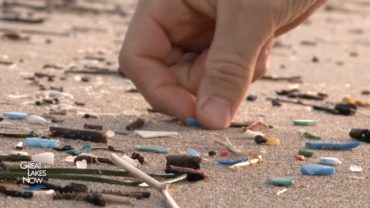 Feature HomepageLatest NewsNewsOntarioResearch, Data and TechnologyScience, Technology, ResearchSharon OosthoekWater Quality and Restoration Efforts
Feature HomepageLatest NewsNewsOntarioResearch, Data and TechnologyScience, Technology, ResearchSharon OosthoekWater Quality and Restoration EffortsPlastic Impact: Canada launches multi-year study of microplastics in water and soil
-Results from previous research have offered conflicting evidence about the particles’ impact on aquatic creatures.
-
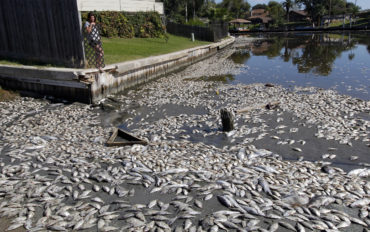 Algae BloomsAPClimate ChangeFeature HomepageFish, Birds and AnimalsLatest NewsNewsResearch, Data and TechnologyWater Quality and Restoration Efforts
Algae BloomsAPClimate ChangeFeature HomepageFish, Birds and AnimalsLatest NewsNewsResearch, Data and TechnologyWater Quality and Restoration EffortsHundreds of lakes in U.S., Europe are losing oxygen
-The study’s authors said declining oxygen could lead to increased fish kills, algal blooms and methane emissions.
-
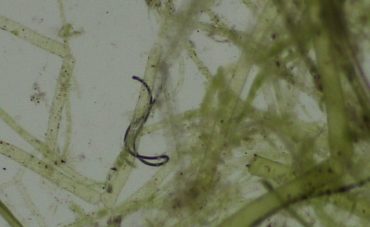 CollaborationGreat Lakes EchoLatest NewsNewsResearch, Data and TechnologyScience, Technology, Research
CollaborationGreat Lakes EchoLatest NewsNewsResearch, Data and TechnologyScience, Technology, ResearchAlgae may vacuum microplastics, but also indicates greater health threat
-A type of algae that a recent study found collects microfibers brings up questions about microplastic pollution impacts and how it could affect human health.
-
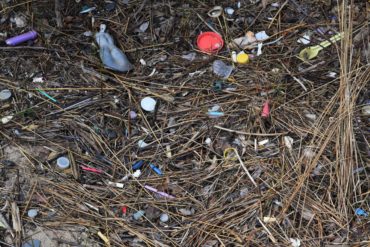 Charles Stewart Mott Foundation PartnershipCollaborationDrinking WaterFeature HomepageLatest NewsMichiganMinnesotaNewsResearch, Data and TechnologyScience, Technology, ResearchWater Quality and Restoration Efforts
Charles Stewart Mott Foundation PartnershipCollaborationDrinking WaterFeature HomepageLatest NewsMichiganMinnesotaNewsResearch, Data and TechnologyScience, Technology, ResearchWater Quality and Restoration EffortsPlastic debris is getting into the Great Lakes, our drinking water, and our food
-Watershed cleanups are popular ways of dealing with local plastic pollution, but once large plastic trash disintegrates into microplastics, they’re nearly impossible to pick up.
-
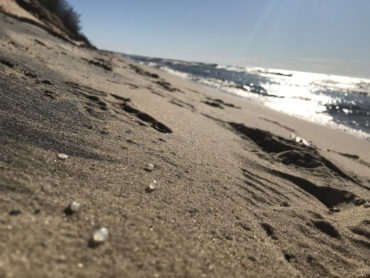 Charles Stewart Mott Foundation PartnershipCollaborationDrinking WaterFeature HomepageFish, Birds and AnimalsLake OntarioLatest NewsNewsOntarioResearch, Data and TechnologyScience, Technology, ResearchSharon OosthoekTorontoWater Quality and Restoration Efforts
Charles Stewart Mott Foundation PartnershipCollaborationDrinking WaterFeature HomepageFish, Birds and AnimalsLake OntarioLatest NewsNewsOntarioResearch, Data and TechnologyScience, Technology, ResearchSharon OosthoekTorontoWater Quality and Restoration EffortsChemical Impact: Microplastic pollution more complex than we think, says new research
-Microplastics act like a chemical sponge, soaking up contaminants such as persistent organic pollutants and heavy metals. Those chemicals, in turn, appear to be causing deformities in larval fish.

